Case Studies.
Add Case Study
Our Case Study database tracks 22,657 case studies in the global enterprise technology ecosystem.
Filters allow you to explore case studies quickly and efficiently.
Download Excel
Filters
-
(6,653)
- (2,601)
- (2,127)
- (945)
- View all
-
(5,642)
- (2,469)
- (1,692)
- (826)
- View all
-
(5,571)
- (2,178)
- (1,766)
- (643)
- View all
-
(5,247)
- (2,179)
- (1,715)
- (1,321)
- View all
-
(2,881)
- (1,448)
- (574)
- (376)
- View all
- View all 15 Technologies
- (1,985)
- (1,985)
- (1,915)
- (1,679)
- (1,629)
- View all 42 Industries
- (8,728)
- (4,742)
- (3,618)
- (3,233)
- (2,947)
- View all 13 Functional Areas
- (3,304)
- (2,787)
- (2,603)
- (2,006)
- (1,630)
- View all 129 Use Cases
- (13,581)
- (5,296)
- (4,272)
- (3,520)
- (2,856)
- View all 9 Services
- (504)
- (432)
- (416)
- (382)
- (301)
- View all 1083 Suppliers
Selected Filters
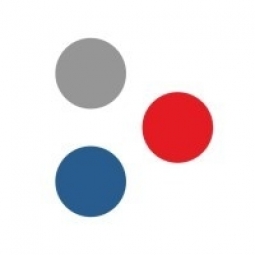
|
GPS Insight Streamlines Processes for Allied Glass
Allied Glass & Aluminum Products, a company based in Victoria, British Columbia, was facing challenges in managing its wide range of services. The company, which has been in business since 1960, provides a variety of services including installation, replacement, repair, and maintenance of commercial doors and windows. They also offer emergency repair services, making their day-to-day operations complex. The company was using a paper-based system for work orders, invoices, and other processes, which was proving to be inefficient. Technicians had to physically visit the office to receive new jobs, and coordinating different systems was a challenge due to the manual nature of the processes. The company recognized the need for an automated management system to streamline their operations.
|
|
|
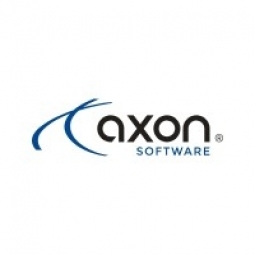
|
Transforming Fleet Management: A Case Study on Blom Transport and Axon Software
Blom Transport, a Hamilton, Ontario-based company, was struggling with the management of its fleet operations. The company, which services the metal recycling industry and mill services for the metal-making industry, was finding it increasingly difficult to keep up with the paperwork associated with its operations. The company was manually managing its operations using spreadsheets, which was time-consuming and inefficient. The owner, Jukka Blom, initially thought that they couldn't afford software to streamline their operations. However, the amount of time spent on paperwork made it clear that they couldn't afford not to have it. The challenge was to find a solution that could help them manage their operations more efficiently, reduce the time spent on paperwork, and allow them to focus more on their core business.
|
|
|

|
Revolutionizing Trucking Operations with Axon Software
Dennis Floyd Trucking Company, a family-run business based in Santa Rosa, California, was facing significant operational challenges due to outdated software. The company, which has been in the trucking industry for generations, was struggling with inefficient processes that were time-consuming and labor-intensive. The old software program was not only outdated but also required a lot of manual work, including looking up information, resolving past issues, and extensive filing. This resulted in a high workload for the team, leading to long working hours and a slow invoicing process. The company was also expanding its operations into Nevada, which necessitated a more efficient and streamlined system that could support remote work.
|
|
|
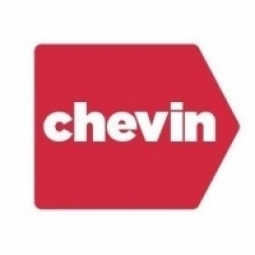
|
Implementing FleetWave in Ford's Autonomous Vehicle Fleet Management
Ford Motor Company, a leading multinational automobile manufacturer, was facing challenges in managing its fleet of over 15,000 vehicles and assets, particularly with the introduction of autonomous vehicles. The management of autonomous vehicles presented unique challenges compared to traditional fleets, including the automation of dispatching and servicing. The company needed a flexible solution that could adapt to their evolving needs as they continued to learn and understand the differences between managing autonomous and traditional fleets. Additionally, Ford was looking for a partner who was willing to work closely with them, understand their specific requirements, and provide continuous support and improvements to the product.
|
|
|
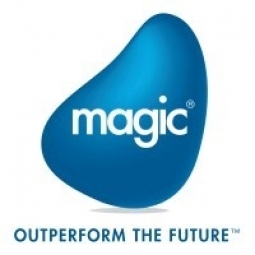
|
King Jouet Streamlines Data Flows with Magic Software
King Jouet, a family-owned toy company with a significant presence in Europe, embarked on a project in 2019 to consolidate its data flows. The project, initiated by King Jouet’s holding company, the Prenatal Retail Group, aimed to provide all group entities with a single, modern, open, and scalable ERP solution. The company selected Microsoft Dynamics as its ERP solution in March 2020 and Avanade as the implementation partner. However, King Jouet identified the need for an integrator capable of managing all incoming and outgoing data flows. This was a significant challenge as the company had multiple software applications that needed to communicate with each other, including checkout and store management, warehouse management system (WMS), cash management, e-commerce site, the B-to-B order portal dedicated to affiliates and various other applications such as expense report management or decision-making tools.
|
|
|
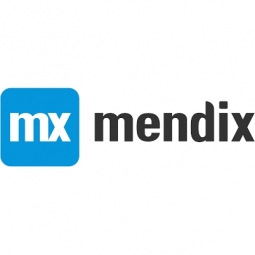
|
Archway's Innovative Banking Solutions with Mendix and AWS
Regional banks play a crucial role in the economic health of communities by offering greater access to funding and personalized services. However, over the last two decades, these institutions have found it increasingly difficult to compete with larger national banks due to customer demand for more convenience and digital touchpoints in banking, and their lack of IT expertise to deliver them. Large national banks have hundreds of people dedicated to software development and can make up for their lack of personal client relationships by offering sleek, easy-to-use applications. This has become particularly important in a post-COVID era, where digital convenience often overshadows the personal touch of in-person banking. Regional banks are at a crossroads – their lean IT budgets are hardly enough to develop enterprise-grade software with traditional code, and commercial-off-the-shelf solutions are typically restrictive.
|
|
|

|
Addison-HVAC Enhances Maintenance Operations with UpKeep Mobile's Offline Capabilities
Addison-HVAC, a leading DOAS manufacturer based in Orlando, Florida, faced significant challenges in managing their maintenance activities. The company employed a team of five technicians, including a maintenance supervisor, who relied on a physical paper request box and an Excel spreadsheet for managing maintenance tasks. This manual process was not only time-consuming but also messy, as technicians often had grease on their hands from working. Moreover, the team had limited Wi-Fi or internet access about 70% of the time due to spotty coverage inside the facility and remote work locations. This lack of consistent internet access posed a significant challenge to the efficient execution and recording of maintenance tasks.
|
|
|
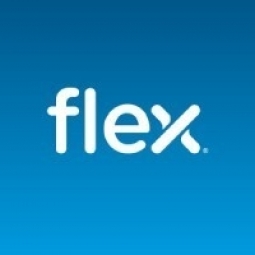
|
Rapid Prototyping and Market Entry: Google Chromecast's Success Story with Flex
Google's entry into the streaming media market was a strategic move to bring online media streaming to an unprecedented mass market. The challenge was to create a disruptive device that could be used in living rooms worldwide. Google partnered with Flex to take the Chromecast from idea to concept to worldwide production. The design and engineering challenges included creating a device that was small in size, competitively priced, had wireless capabilities, and could manage temperature effectively. The goal was to design a prototype of the Chromecast in just four weeks and speed up the time to market, beating competitors on both market entry and price.
|
|
|
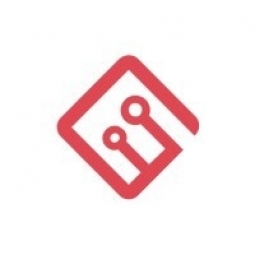
|
MacroFab Streamlines Production for Keyless Security Brand
The keyless security brand, a provider of devices for commercial real estate buildings, parking garages, and multi-family residential complexes, was facing a major challenge in its production process. The company had been working with a cost-effective Taiwanese contract manufacturer, which was capable of handling production-level volumes. However, the onset of the COVID-19 pandemic brought about frequent engineering design changes, which required significant oversight from the facility. The 14-hour time zone difference between the client and the manufacturer made real-time collaboration difficult. Overseas flights to facilitate on-site collaboration were considered, but these would delay production times and increase manufacturing costs. Given the uncertainty brought on by the pandemic, it was clear that this arrangement would not be sustainable.
|
|
|
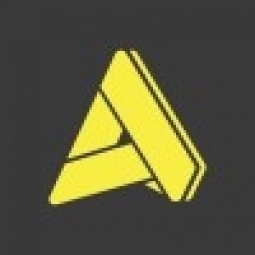
|
ASK Chemicals' Digital Transformation: Cloud-Based ERP at the Core
ASK Chemicals, a leading global supplier of phenolic resins, faced significant challenges due to its outdated and fragmented data management system. The company, with over 2,000 employees worldwide and 18 production facilities, was struggling to merge data from different facilities located in various countries. Each facility had a mix of on-premise installations and best-of-breed software, which made it difficult to create a unified global operational base. The leadership team identified several issues, including poor performance, lack of scalability leading to higher costs, suboptimal cybersecurity, delayed response times, and other platform limitations that hindered innovation efforts. The company needed a solution that would not only address these challenges but also lay the foundation for a new digital business model.
|
|
|
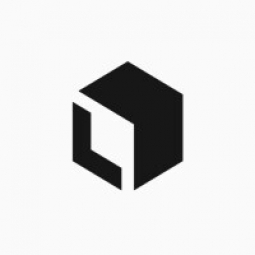
|
Non-Expert Labeling Teams Can Create High Quality Training Data for Medical Use Cases
Creating high-quality training data for machine learning (ML) use cases can be expensive and time-consuming, especially for specialized fields that require domain experts to review and label the data. This is particularly true in the medical field, where doctors are often required to meticulously label or review training data. This process can be arduous and costly, slowing down the development of potentially life-saving algorithms. The challenge was to find a way to create high-quality training data with less involvement from physicians, thereby reducing costs and speeding up the development process.
|
|
|

|
Enhancing Pick-and-Place Robots with Annotations from Scale Rapid
Ambi Robotics provides AI-powered robotic systems to customers, enabling them to scale their operations and handle increasing supply chain demand. The company's machine learning (ML) system is responsible for identifying an object and its location, and moving the robot hand to that location to grasp the object. The pick success rate, which is how often a robot successfully picks up an object, is the most important marker of success. However, Ambi Robotics faced a challenge in obtaining high-quality annotations for their data, which is crucial for improving their models. Initially, the company was managing the annotation process in-house, but this approach was not scalable for the amount of data they needed. When working with new clients and locations, Ambi Robotics would sometimes see lower pick-and-place success rates, simply because the environment looked different. The best way to improve performance was to mine data from the new location, annotate it, and then retrain their ML model. However, the company lacked the infrastructure to process this large quantity of data on a recurring basis.
|
|
|

|
Ramanujan College's Innovative Open Cloud R&D Platform
Ramanujan College, a constituent college of the University of Delhi, has a computer science department that collaborates with the Indian government, industry stakeholders, and other universities to conduct research and development (R&D) projects. A significant focus area is the development of sovereign cloud platforms that can compete with today's hyperscalers while ensuring data security within India's borders. Previously, most of the R&D work was hosted in the public cloud. However, running performance-intensive applications for 5G communications, blockchain, and a learning management system for over 150,000 participants led to escalating costs.
|
|
|

|
IoT Analytics Safeguarding Water Resources in Southern Italy
The Southern Apennine region in Italy, which is responsible for the country's central and southern water resources, is increasingly susceptible to the impacts of climate change. Unpredictable and violent thunderstorms are affecting the hydrogeological structure of the soil, while prolonged droughts are escalating the risk of potential desertification. The intensive use of the land for agriculture and other purposes has also heightened exposure to natural disasters. The District Basin Authority, which governs the physical environment and protects its water resources, is tasked with monitoring the appropriate use of these resources, forecasting the region’s water supply, and preventing natural and human-made hazards. The Authority initiated a project to continuously monitor water quality and availability throughout the territory, aiming to build a network of remote sensors that could surveil the water system and analyze the data using various technologies, including big data analytics and data science modeling.
|
|
|

|
Improving Workforce Visibility and Safety: A Case Study on Genel Energy
Genel Energy, an independent oil and gas company operating in Kurdistan, Iraq, faced a significant challenge in managing its workforce of over 2,000 people spread across multiple sites. The company was seeking a solution to enhance its workforce visibility and safety. The global pandemic in 2020 added to the existing HSE challenges, putting the sites and operations at risk. Genel needed a solution that would enable them to monitor and track the movement of their workforce across sites, improve worker safety, and manage risk more effectively.
|
|
|
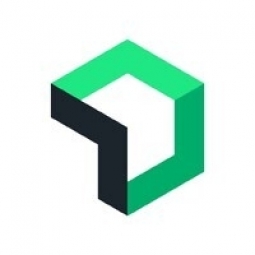
|
ABS-CBN Boosts Uptime to 98-99.5% with Automated Incident Alerts
ABS-CBN Corporation, a leading media and entertainment organization in the Philippines, was facing challenges in managing its streaming and digital media services. The Philippines, being one of the world’s biggest markets for online and digital media, has a highly competitive market that demands constant innovation and exceptional user experience. ABS-CBN was struggling with a volatile demand from event-driven spikes, such as live election coverage, which required a robust and stable tech stack. The company was using multiple tools for monitoring, error reporting, tracking resources health, and on-premise infrastructure, which created a siloed technology environment. This led to a reactive approach where problems weren’t identified until they had escalated and were impacting end-users. The engineers lacked sufficient information to pinpoint the problems.
|
|
|

|
Achievers Enhances Global Infrastructure with New Relic's Service Level Management
Achievers, an award-winning platform for employee recognition and engagement, experienced significant growth over the past two years, serving more than 2,500 brands across over 150 countries. This growth brought about new and increased technical demands, including the need to support a global architecture while maintaining quality and reliability. The company needed to transition from a system of disparate Kubernetes clusters—with no communication between regions—to a single, unified system across the organization’s global footprint. The Site Reliability Engineers (SREs) and developers at Achievers faced the complex task of running a multi-region Kubernetes service mesh. Scaling the platform globally and making sense of all the distributed data was a significant challenge. It was difficult to understand what data was needed and how to use this data to solve their problems.
|
|
|

|
Credit Sense Achieves Significant Savings and Efficiency with New Relic
Credit Sense, a platform that enables consumers to safely share their data and connect with services faster, was facing significant challenges in managing its cloud costs and diagnosing problems in its system. The company had developed a comprehensive data aggregation and analysis solution to solve key affordability, compliance, and risk management challenges faced by lenders when assessing customers for credit and other services. However, the company had no monitoring tools in place, which was affecting its ability to manage its Amazon Web Services (AWS) costs and quickly diagnose system issues. This was critically affecting their clients in the finance industry, who relied on Credit Sense for their customer on-boarding process.
|
|
|

|
Getir's Rapid Expansion and Efficiency through IoT and Observability
Founded in 2015, Getir is an ultrafast delivery pioneer that has expanded its unique business model over time with various services. The company revolutionized last-mile delivery to customers with a 10-minute grocery delivery proposition, offering approximately 2,000 everyday items. Getir is now operating in all 81 cities of Turkey and launched operations in a number of countries in 2021. The company’s tech has enabled it to scale and succeed under the most challenging of circumstances. However, the company's proposition is speed through technology, and the end-to-end delivery process, from order to courier, must be fast and seamless. This requires a robust, cloud-based, integrated technology system that uses data and algorithms to manage supplies and customer demand.
|
|
|

|
Kogan's Hyper Growth and Increased Sales Through New Relic Dashboards
Kogan.com, a leading Australian consumer brand, experienced a significant surge in demand during 2020. The company's share price rose by 360% between March and July, and gross sales increased by nearly 40% to reach AUD$768.9 million. This was largely due to the increased demand for online shopping during the pandemic, with consumers seeking technology, home entertainment, PPE, office supplies, and exercise equipment. While Kogan.com was able to keep up with the demand, other online retailers began to experience website crashes or slowdowns. Kogan.com's challenge was to manage this surge in demand while maintaining its strong infrastructure, stock reordering initiatives, and forecasting. The company also needed to manage the growth of its customer base, which was rapidly expanding.
|
|
|
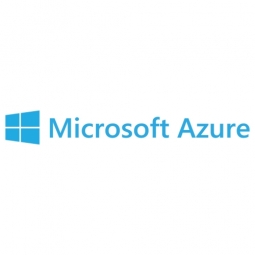
|
Alışan Grup's Digital Transformation with Microsoft Azure
Alışan Grup, a top-500 Turkish business conglomerate, was facing several challenges in its digital journey. The flagship company of the group, Alışan Lojistik A.Ş., a market maker for the Turkish logistics business, was dealing with high costs of database update, maintenance, and management. The company also had insufficient capacity to ensure efficient management of business continuity. The company's existing services were difficult to comprehend and run, and there were challenges in access, document management, security, integration, and development. The company was also facing issues with its internally hosted SharePoint, which posed challenges in terms of business continuity and practical hurdles for database scenario and application layer creation.
|
|
|

|
BHI: Transforming Workplace Productivity with Google Workspace and AppSheet
BHI, a turnkey general contractor serving various industries across the United States, was grappling with outdated technology that was hampering its productivity and growth. As the company expanded its operations to over 25 states, its technology infrastructure, including file sharing and email systems, lagged behind. Employees had to go through a tedious process of downloading, editing, and uploading files via a VPN from job sites with limited internet connectivity. This inefficient system was not only time-consuming but also hindered collaboration among teams. The company recognized the need for a more innovative, productive, and profitable technology solution to keep up with its growth and the demands of its increasingly mobile workforce.
|
|
|

|
Ataeum: A Revolutionary Platform for Entrepreneurs Leveraging IoT
Ataeum, an innovative platform for entrepreneurs, was faced with the challenge of creating an all-in-one solution that would allow entrepreneurs to connect with co-founders, run startups in an automated, low-cost, and paperwork-free manner. The team wanted to create a platform that would minimize uncertainty and conflicts among co-founders, facilitate fair ownership based on the amount of work done, and manage a joint venture to enable entrepreneurs to run their startups in a lightweight and automated way. The challenge was to create a platform that would eliminate the need for entrepreneurs to worry about things like incorporation, bylaws, stock options, state qualifications, and bank accounts until they make revenues or decide to incorporate.
|
|
|
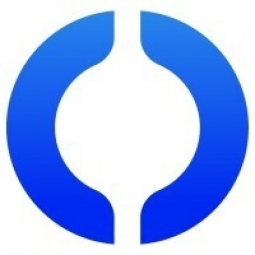
|
YV Packaging: Streamlining Inventory Management with Fishbowl Warehouse
YV Packaging, a national fruit and produce packaging business based in Yarra Valley, was facing significant challenges with its inventory management. The company was using Reckon Accounts, an accounting software, which was not specifically designed to handle inventory. As a result, the company had to rely heavily on manual stock counting. Glenn Barker, the Managing Director, noticed large discrepancies between the latest count and previous ones, which were attributed to human error. This was a significant issue for the company as it affected the accuracy of their inventory data and could potentially impact their ability to fulfill orders.
|
|
|

|
Pruning and Content Optimization Boosts Traffic and Revenue for CB World and Auto Body Toolmart
CB World and Auto Body Toolmart, two online retailers, were facing challenges with their website content. CB World had a neglected and unnecessary blog that was doing more harm than good. The blog was not providing value to the readers and was unlikely to improve without additional resources. Auto Body Toolmart, on the other hand, had seen a sharp decline in revenue and organic traffic over the summer of 2015. A content audit revealed that thousands of pages had not driven any organic traffic Year to Date (YTD) by the end of September 2015. This was a classic case of thin content and index bloat. Both companies needed a solution to improve their website performance and increase organic traffic and revenue.
|
|
|

|
Boosting Strategic Content Revenue by 64% through Content Pruning: A Case Study
The primary challenge faced by most eCommerce stores is improving and expanding their content to enhance their SEO performance. This process often requires significant time and resources. However, the case study focuses on an alternative approach to increase organic traffic without adding new content or improving existing content. The solution lies in deindexing low-performing blog posts through a process known as content pruning. This SEO tactic requires less work than adding new content and can significantly boost organic traffic and revenue. The case study highlights the experience of HomeScienceTools.com, an online store that provides educational scientific products. The store's blog, 'Learning Center,' was hosted on its own subdomain, which had its own SEO impacts. The challenge was to improve the site's SEO performance by pruning underperforming pages.
|
|
|

|
888 Holdings Leverages Hitachi Vantara for High-Performance Gaming Infrastructure
888 Holdings, a leading online betting and gaming company, faced the challenge of maintaining high customer satisfaction levels in gaming while meeting stringent data protection regulations. The company hosts more than 40,000 concurrent users, each expecting high standards of service in terms of performance and availability. This necessitated a high-performance infrastructure. Additionally, the gaming industry is heavily regulated, with increasing data protection requirements. 888 Holdings was required to keep a third copy of all data, leading to rapid data growth. The challenge was to manage this data growth while ensuring low latency and high availability in data centers.
|
|
|

|
Data Reliability Supports Real-time Reporting & Analytics for Bing Lee
Bing Lee, a consumer electronics retail chain in Australia, was facing a significant challenge in integrating business data during a complex digital transformation project. The company's legacy ERP had become a highly customized system, dependent on a single point of failure. Its data was unstructured, and problematic processes were making the data generated by the system unreliable. Bing Lee invested in a new cloud-based ERP and developed their own Point of Sale (POS) system. A new reporting tool was also selected to improve user experience for employees. However, the transition to the new ERP was slowed down by the Covid-19 pandemic, and the company's sales and number of transactions substantially grew, increasing the volume of data through its systems.
|
|
|

|
La Sarine Health Network's Digital Transformation: Enhancing Healthcare Services with IoT
La Sarine Health Network, a conglomerate of 12 publicly funded healthcare organizations in the La Sarine district of Switzerland, was grappling with the challenges of an aging population and the consequent complex healthcare demands. The organization relied heavily on digital systems for its service delivery, from back-office administration to managing patient data. However, their existing IT infrastructure, comprising two virtualized standalone servers with built-in storage, was proving inadequate. The servers were hosted at the region's residential care center and were unable to rapidly move virtual workloads from one platform to another, reducing flexibility and increasing the risk of downtime in a disaster-recovery scenario. Moreover, the onboard storage was nearing capacity, with utilization of around 85% on each server. The organization needed a solution that could offer quick and simple orchestration of storage as a single pool, allowing it to rapidly move workloads between servers and scale out its storage resources efficiently.
|
|
|

|
Driving Operational Efficiency in Agriculture with IoT: A Case Study on Hitachi Process Intelligence and Google Cloud
Meat & Livestock Australia (MLA), a global leader in the production and export of livestock, was faced with the challenge of improving product quality, productivity, and global market share. They aimed to drive the adoption of best practices across the industry and improve data collection for enhanced decision making. The business challenge was integrating data across the value chain to drive decision making. This was necessary not only from a supply and demand perspective but also a quality perspective so that farmers could continuously improve and provide the right product at the right time to the right markets. Given that MLA supports 50,000 farms on over 5.2 million acres, they needed collaboration from solution and cloud partners with a deep understanding of the challenges within the meat and livestock industry and the expertise to develop a new internet of things (IoT) digital strategy for collecting data and making data-driven decisions across the value chain.
|
|




